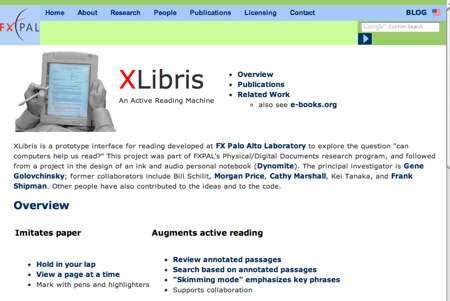Tree-books to e-books
Stacey Mason
Gene Golovchinsky, a leading researcher in the ebook world, criticizes Cushing Academy’s decision to dump textbooks and other tree-books in favor of eBooks. The school invested in three large monitors, “laptop-friendly study carrels” and 18 eBook reading platforms such as Amazon’s Kindle and Sony’s eReader to view the new eBooks.

Golovchinsky mentions the ever-present copyright issues and the durability of the files, but his main concern is the ways in which eBooks are inferior to print books. They cannot, for example, show color or images. He disputes that the book is an obsolete tool.

Gene Golovchinsky
One reason eBooks loose the drag race with paper is that they don’t yet take much advantage of hypertextuality. The ebook simulates paper. It is produced in advance, linear and rigidly structured, and one organization must fit everyone.. It must be read in a particular order, and it can’t be added to once it’s complete. Perhaps this comforts the completionists, but it’s not the way information works.
